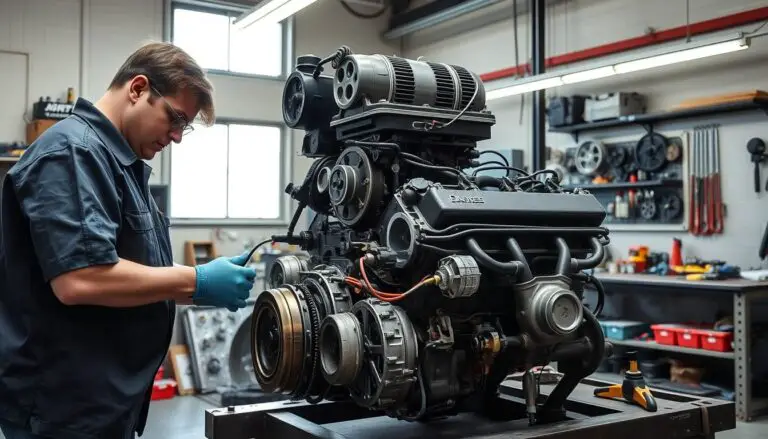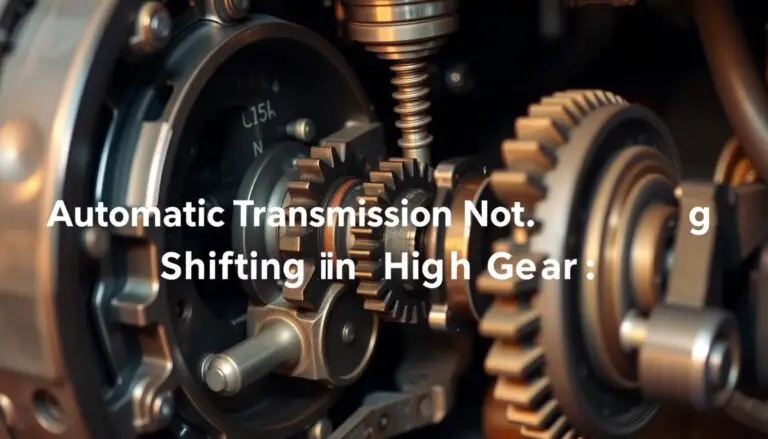Today, we’ll explore what automotive experts have to say about whether it’s bad to turn off your car with the AC on and what impact this habit might have on your vehicle.
The Common Practice: Why People Turn Off AC Before Engine
Many drivers have been taught to turn off their vehicle’s air conditioning system a few minutes before reaching their destination. This practice stems from older automotive technologies and has been passed down through generations of drivers. But is this habit still relevant for modern vehicles?
According to automotive forums like Bob Is The Oil Guy, many drivers continue this practice because they believe it helps prevent various issues with their vehicle’s AC system and engine. Some of the commonly cited reasons include:
- Reducing strain on the engine during startup
- Preventing moisture buildup in the evaporator
- Avoiding potential mold and odor development
- Extending the life of AC components
- Preserving battery power
But are these concerns valid with today’s automotive technology? Let’s examine what happens when you turn off your car with the AC running and whether it poses any actual risks to your vehicle.

Potential Risks: Does Turning Off Car with AC On Cause Damage?
To understand whether turning off your car with the AC running poses any risks, we need to examine how the air conditioning system interacts with other vehicle components during shutdown.
Impact on Battery
One common concern is that leaving the AC on when turning off the engine might drain the battery. According to automotive experts, this isn’t a significant issue for most modern vehicles. When you turn the key to the “off” position or press the engine stop button, the electrical systems—including the air conditioner—automatically shut down.
As explained by Jerome Tresvalles from AutoDeal: “Modern vehicles have become much smarter and they can now automatically turn off all unnecessary accessories right before you start a vehicle. In this manner, most of the available power will go directly to starting your motor and will not be diverted elsewhere.”
Effects on the AC Compressor
Another concern involves potential damage to the AC compressor. The compressor is driven by the engine through a belt system, and it stops operating when the engine shuts down. In modern vehicles, the compressor is designed to handle normal shutdown procedures without any special preparation.
BurrWinder, an automotive expert from a popular forum, explains: “Some might even be ‘SHOCKED’ to find out some fairly recent VW’s and others have ‘constant on’ AC compressors that CAN NOT ever be completely shut off. They just turn down their internal adjusting swash plate to the minimum and that is that.”

Moisture and Mold Concerns
Perhaps the most legitimate concern relates to moisture buildup in the evaporator. When the AC runs, condensation forms on the evaporator coils. If this moisture doesn’t dry out, it can potentially lead to mold growth and unpleasant odors.
As one automotive technician notes: “The practice of shutting off the A/C ten minutes or so before home is supposed to allow the evaporator and its housing to come to ambient temperature while air is still blowing across it from the vent fan. The hope is that at least most of the condensate will evaporate before airflow goes to zero, minimizing the growth of mold.”
Did you know? The stinky-feet-smell in car AC systems is more common in regions where air conditioning is used intermittently rather than continuously. In consistently hot climates where AC runs regularly, mold has less opportunity to develop.
Mechanical Impact: Modern vs. Older Car Systems
The debate about turning off car with AC on becomes clearer when we distinguish between modern and older vehicle systems.
Older Vehicles (Carbureted Engines)
For vehicles with carbureted engines (generally pre-1990s), there was legitimate reason to turn off the AC before shutting down the engine:
- Carburetors struggled to manage fuel delivery with additional loads
- Starting with AC on could cause rough starts or stalling
- Older electrical systems had limited capacity to handle multiple demands
- AC compressors created significant drag on the engine
As PTT Lubricants explains: “In operation, the starter will exert to start the engine and the air compressor will be driven simultaneously through a belt. Therefore, if the air conditioning system starts working as soon as the engine starts, it will put too many loads on the battery from having to handle both the engine and the cooling system.”
Modern Vehicles (Fuel-Injected with ECUs)
Contemporary vehicles with electronic control units (ECUs) and fuel injection systems handle AC operation very differently:
- ECUs automatically manage power distribution during startup
- Many systems temporarily disable the AC compressor during startup
- Variable displacement compressors adjust their output based on demand
- Robust electrical systems can handle multiple simultaneous loads

According to automotive experts at AutoDeal: “Now, however, with more modern technology, this isn’t the case anymore as a car will be able to start without any extra load being placed on the engine. With ECUs now in charge of the engine, they are now able to prioritize all power delivery to the starter motor.”
Older Carbureted Vehicles
- Manual fuel management
- Limited electrical capacity
- Fixed-displacement compressors
- Benefit from turning AC off before shutdown
Modern Fuel-Injected Vehicles
- Electronic fuel management
- Robust electrical systems
- Variable-displacement compressors
- No significant benefit from turning AC off before shutdown
Best Practices: How to Properly Use Your Car’s AC System
While modern vehicles don’t strictly require turning off the AC before engine shutdown, there are still some best practices that can help maintain your air conditioning system and ensure optimal performance.

For Modern Vehicles (Post-2000)
- Normal operation is fine: It’s generally acceptable to leave the AC on when shutting down the engine
- Consider climate: In humid environments, running the fan without AC for a few minutes before shutdown can help dry the evaporator
- Use fresh air mode: Switching from recirculation to fresh air mode before shutdown can help reduce moisture
- Regular maintenance: Change cabin air filters according to manufacturer recommendations
- Periodic system checks: Have your AC system inspected annually to ensure proper operation
For Older Vehicles (Pre-2000)
- Turn AC off before shutdown: Give your engine a break from the AC load before turning it off
- Wait before restarting: If you’ve just turned off your car, wait a few minutes before restarting with the AC on
- Monitor battery health: Older electrical systems may struggle with multiple loads
- Regular belt checks: Inspect the serpentine or AC belt for wear and proper tension
- System maintenance: Have the refrigerant levels checked more frequently
Is Your AC System Working Properly?
If you’re experiencing weak cooling, unusual noises, or strange odors from your AC system, it might be time for a professional inspection. Regular maintenance can prevent costly repairs and ensure your comfort year-round.
Preventing Mold and Odors
If you’re concerned about moisture and mold development in your AC system, these practices can help regardless of your vehicle’s age:

- Run the fan without AC for 5-10 minutes before reaching your destination
- Use the “fresh air” setting (not recirculation) during this time
- Consider leaving the windows slightly open when parked on hot, humid days
- Use AC cleaning products designed to eliminate mold and bacteria
- Replace cabin air filters regularly to prevent dust accumulation
Myth Busting: Common Misconceptions About Car AC Usage
Let’s address some common myths about turning off your car with the AC running:
Myth: Turning off your car with AC on will drain the battery instantly
Reality: When you turn off your car, the electrical systems—including the AC—also shut down. There’s no continued drain on the battery from the AC system after the engine is off. The only components that continue to draw power are those designed to operate without the engine running (like security systems).
Myth: The AC compressor will be damaged if the car is shut off while it’s running
Reality: Modern AC compressors are designed to handle normal shutdown procedures. As one expert from Bob Is The Oil Guy forum explains: “It will ’empty out’ itself of refrigerant just fine without any intervention.” The compressor stops when the engine stops, regardless of whether the AC button is on or off.
Myth: Starting your car with the AC on puts excessive strain on the engine
Reality: In modern vehicles, the ECU temporarily disables high-load accessories like the AC compressor during startup. The compressor typically engages only after the engine is running smoothly. As AutoDeal explains: “Modern vehicles have become much smarter and they can now automatically turn off all unnecessary accessories right before you start a vehicle.”
Myth: Turning off the AC before shutdown saves significant fuel
Reality: While running the AC does increase fuel consumption slightly while driving, turning it off moments before shutdown saves negligible amounts of fuel. The engine typically runs for only a few seconds after you initiate shutdown, so any fuel savings would be minimal.

“Either use the A/C… or don’t… either way it isn’t really a big deal in the scheme of things…. some systems may be more prone to smell, others not. But to obsess about it the way some do is kind of comical, at best.”
Expert Advice: What Automotive Professionals Recommend
We’ve gathered insights from automotive professionals to provide a clear consensus on the question of turning off your car with the AC running:

Mechanic Perspective
“For modern vehicles, there’s no mechanical need to turn off the AC before shutting down the engine. The system is designed to handle it. However, running the fan without cooling for a few minutes can help prevent odors in humid climates.”

Manufacturer Perspective
“Modern vehicles are engineered with sophisticated control systems that manage AC operation during startup and shutdown. These systems protect components and optimize performance without requiring manual intervention from the driver.”

AC Specialist Perspective
“The biggest concern isn’t mechanical damage but moisture management. In humid environments, running the fan without cooling before shutdown helps dry the evaporator and prevent mold growth. This is more about comfort and air quality than protecting mechanical components.”
Consensus Recommendation
The general consensus among automotive experts is that for modern vehicles (roughly 2000 and newer), there’s no significant mechanical benefit to turning off the AC before shutting down the engine. However, in humid environments, running the fan without cooling for a few minutes before shutdown can help prevent moisture-related issues like mold and odors.
Expert Tip: If you notice a musty smell when you turn on your AC, try this maintenance procedure: With the engine running, turn off the AC but keep the fan on high with fresh air (not recirculation) for 5-10 minutes. Do this once a week during humid weather to help keep your evaporator dry and odor-free.
Conclusion: Should You Turn Off Your Car with AC On?
After examining expert opinions and the mechanics of automotive air conditioning systems, we can draw some clear conclusions about whether it’s bad to turn off your car with the AC on:
For Modern Vehicles (Post-2000)
- It’s generally fine to leave the AC on when shutting down the engine
- Modern ECUs manage power distribution appropriately
- AC compressors are designed to handle normal shutdown procedures
- No significant mechanical benefit to manually turning off AC first
For Older Vehicles (Pre-2000)
- Consider turning off AC before shutdown to reduce load on older systems
- Carbureted engines benefit from reduced load during shutdown
- Older electrical systems may struggle with multiple demands
- Manual intervention may help extend component life
Regardless of your vehicle’s age, if you’re concerned about moisture and mold in the AC system, running the fan without cooling for a few minutes before shutdown can help dry the evaporator—especially in humid climates.
The bottom line: For most modern vehicles, turning off your car with the AC on won’t cause damage to your engine, battery, or AC components. However, if you’ve developed the habit of turning off the AC before shutdown, there’s no harm in continuing this practice—it just isn’t mechanically necessary for most contemporary vehicles.

Keep Your AC System in Top Condition
Regular maintenance is the key to ensuring your car’s air conditioning system performs efficiently and lasts longer. Download our free AC maintenance checklist to help keep your system running smoothly year-round.


